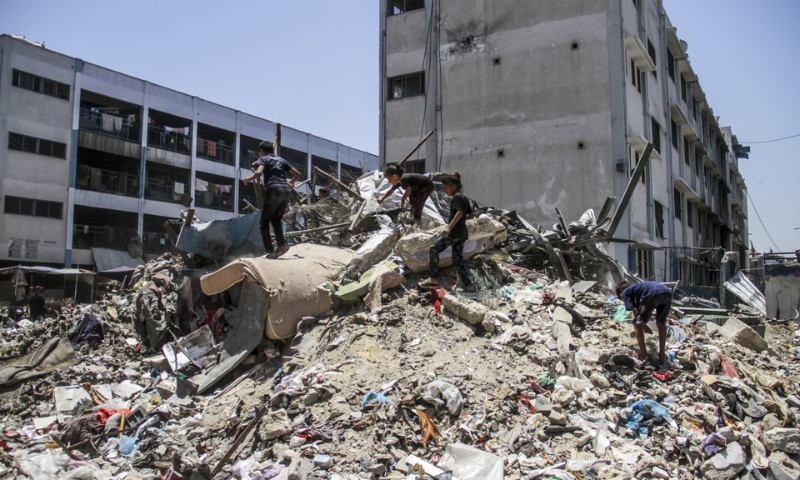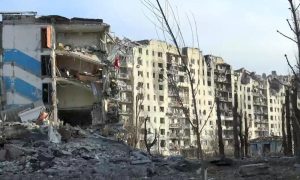GAZA: Israel launched airstrikes on Monday in Gaza, breaking a day of relative calm as Muslims celebrated Eid Al-Adha, with witnesses reporting explosions in the southern part of the besieged territory.
Since October 7 last year, Israel has launched a relentless bombardment campaign in Gaza killing at least 37,347 Palestinians in Gaza, mostly women and children, according to the territory’s health ministry. The relentless Israeli bombardment campaign has reduced much of the besieged Gaza Strip to ruins.
Israeli Prime Minister Benjamin Netanyahu dissolved the country’s war cabinet, a move confirmed by government spokesman David Mencer. This decision followed the resignation of centrist leader Benny Gantz earlier this month, whose presence was key for the formation of the war cabinet within the unity government.
The dissolution of the war cabinet indicates internal fractures at the highest levels of Israeli politics, impacting decision-making on military operations, including airstrikes on Gaza.
Witnesses in Gaza reported explosions in Rafah’s center and west on Monday morning, alongside airstrikes in Gaza City that resulted in at least five deaths according to medics at Al-Ahli Hospital. Israeli tank shelling was also reported in the southern Zeitun neighborhood and Bureij refugee camp in central Gaza.
Palestinian officials confirmed tank shelling in Rafah earlier on Monday, with reports of Israeli military movements and gunfire in Rafah and Bureij camp.
The Gaza health ministry reported 10 deaths over the past 24 hours, marking a relatively lower toll compared to previous days of the conflict. However, humanitarian needs remain critical, with calls from the United Nations for Israel to facilitate the delivery of aid amid ongoing restrictions.
The UN humanitarian agency OCHA welcomed Israel’s announcement of a pause in airstrikes but emphasized the need for concrete actions to address long-standing humanitarian crises in Gaza, including food, water, sanitation, shelter, and healthcare shortages.
The head of the World Health Organization said last week that much of Gaza’s population faces “catastrophic hunger and famine-like conditions.”
Egyptian President Abdel Fattah al-Sisi agreed to temporarily divert aid to Gaza via Israel’s Kerem Shalom crossing following discussions with US President Joe Biden, aimed at alleviating the dire humanitarian situation exacerbated by access restrictions and the closure of the Rafah crossing.
In an Eid message late Sunday, US President Biden reiterated his call for a ceasefire plan he outlined, emphasizing it as the “best way to end the Israeli violence in Gaza” and alleviate Palestinian civilian suffering. However, efforts by Egyptian, Qatari, and US mediators for a new Gaza truce have yet to yield results.
Biden’s truce plan would bring an initial six-week pause to fighting. “I strongly believe that the three-phase ceasefire proposal Israel has made to Hamas and that the UN Security Council has endorsed is the best way to end the violence in Gaza and ultimately end the war,” the US president said.
Meanwhile, Israel continued to bomb Gaza and reiterated its commitment to eliminate Hamas from Gaza despite truce talks. Hamas continued to demand the complete withdrawal of Israeli forces from Gaza and a permanent ceasefire. Israel has rejected Hamas’s conditions and refused to withdraw troops from Gaza.























